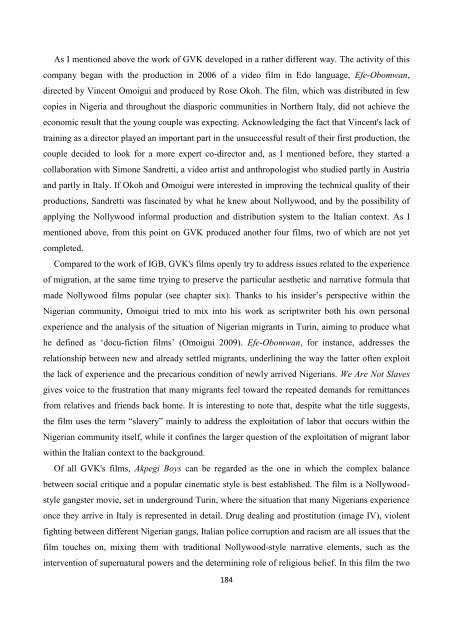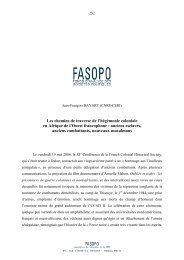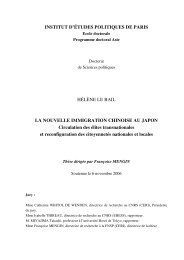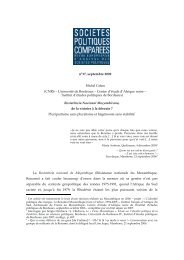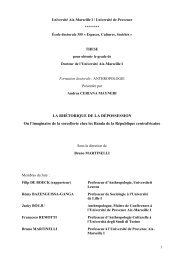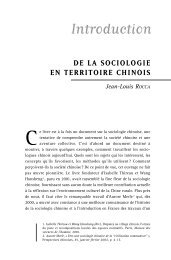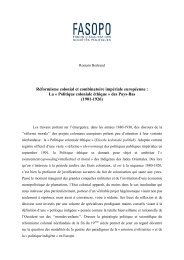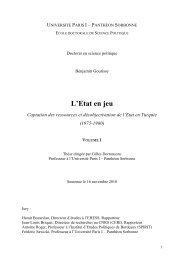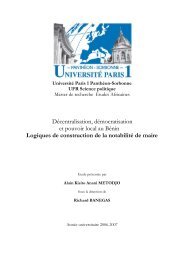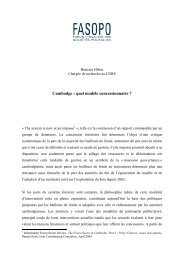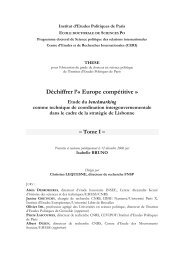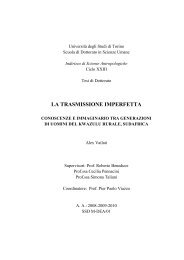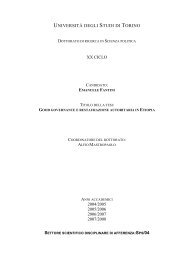Create successful ePaper yourself
Turn your PDF publications into a flip-book with our unique Google optimized e-Paper software.
As I mentioned above the work of GVK developed in a rather different way. The activity of thiscompany began with the production in 2006 of a video film in Edo language, Efe-Obomwan,directed by Vincent Omoigui and produced by Rose Okoh. The film, which was distributed in fewcopies in Nigeria and throughout the diasporic communities in Northern Italy, did not achieve theeconomic result that the young couple was expecting. Acknowledging the fact that Vincent's lack oftraining as a director played an important part in the unsuccessful result of their first production, thecouple decided to look for a more expert co-director and, as I mentioned before, they started acollaboration with Simone Sandretti, a video artist and anthropologist who studied partly in Austriaand partly in Italy. If Okoh and Omoigui were interested in improving the technical quality of theirproductions, Sandretti was fascinated by what he knew about Nollywood, and by the possibility ofapplying the Nollywood informal production and distribution system to the Italian context. As Imentioned above, from this point on GVK produced another four films, two of which are not yetcompleted.Compared to the work of IGB, GVK's films openly try to address issues related to the experienceof migration, at the same time trying to preserve the particular aesthetic and narrative formula thatmade Nollywood films popular (see chapter six). Thanks to his insider’s perspective within theNigerian community, Omoigui tried to mix into his work as scriptwriter both his own personalexperience and the analysis of the situation of Nigerian migrants in Turin, aiming to produce whathe defined as ‘docu-fiction films’ (Omoigui 2009). Efe-Obomwan, for instance, addresses therelationship between new and already settled migrants, underlining the way the latter often exploitthe lack of experience and the precarious condition of newly arrived Nigerians. We Are Not Slavesgives voice to the frustration that many migrants feel toward the repeated demands for remittancesfrom relatives and friends back home. It is interesting to note that, despite what the title suggests,the film uses the term “slavery” mainly to address the exploitation of labor that occurs within theNigerian community itself, while it confines the larger question of the exploitation of migrant laborwithin the Italian context to the background.Of all GVK's films, Akpegi Boys can be regarded as the one in which the complex balancebetween social critique and a popular cinematic style is best established. The film is a Nollywoodstylegangster movie, set in underground Turin, where the situation that many Nigerians experienceonce they arrive in Italy is represented in detail. Drug dealing and prostitution (image IV), violentfighting between different Nigerian gangs, Italian police corruption and racism are all issues that thefilm touches on, mixing them with traditional Nollywood-style narrative elements, such as theintervention of supernatural powers and the determining role of religious belief. In this film the two184


